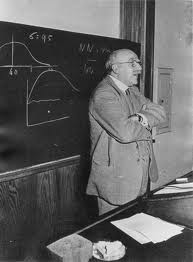A very entertaining correspondent in New Zealand sent me this.
Tag Archives: evolution
More or less?
Very interesting after-work drink with Mary Beth Williams, the recently appointed Eberly College of Science Dean for Undergraduate Education and a guest instructor on this course (nano). She was looking for ideas on how to better engage research-active faculty in undergrad education. I was after a solution to the question which is really starting to bother me about 2012. Should we go for more students (e.g. 400) or should we go elite niche (e.g. 20 Schreyer Honors students)? The status quo (100 random students) is also an option.

 Oddly, her arguments made me think of Huxley and especially Haldane, two outstanding evolutionary biologists who took engagement with the wider citizenry very seriously. Mary Beth had heard of neither of them, but that is because she is an impoverished chemist. One was from the chosen elite, the other not. Both made a real difference to their generations by not being elitist.
Oddly, her arguments made me think of Huxley and especially Haldane, two outstanding evolutionary biologists who took engagement with the wider citizenry very seriously. Mary Beth had heard of neither of them, but that is because she is an impoverished chemist. One was from the chosen elite, the other not. Both made a real difference to their generations by not being elitist.

